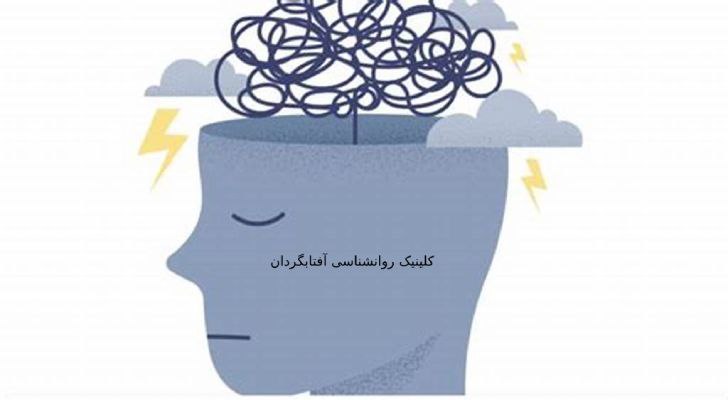Rumination
Introduction
Rumination , is a response to a disappointment that focuses on negative content and involves repetitive and prolonged thinking about the upsetting experience For example, a person who is traumatized can not stop thinking about a traumatic event that happened. rumination is one of the common form of overthinking. This cognitive process involves the repetitive and passive focus on the causes, consequences, and symptoms of one’s distress rather than its solutions. Understanding rumination is crucial, as it plays a significant role in various mental health conditions, including depression and anxiety.
What is Rumination?
Rumination involves a cycle of overthinking where an individual revisits the same thoughts and worries repeatedly For example , spend a lot of time replaying in your mind a tense conversation you had with someone or thinking over and over about one’s. Unlike problem-solving, which is goal-oriented and seeks to address and resolve issues, rumination is more about dwelling on problems without moving towards a solution And it makes the mind locked therefore, it interferes with decisions and life management. also habit-forming since we’re laying down neural pathways in our brains when we do it.
It often involves brooding over past events, regretting decisions, or worrying about potential future scenarios.
The Psychological Mechanisms of Rumination
Several psychological theories attempt to explain why rumination occurs. One prominent theory is the Response Style Theory, which suggests that individuals who are prone to depression tend to ruminate more. According to this theory, those with a ruminative response style are more likely to engage in repetitive thinking about their emotions and problems, which exacerbates their depressive symptoms.
Another perspective is the Cognitive Theory of Depression, which posits that rumination is a maladaptive cognitive strategy. According to this theory, individuals with depression are more likely to engage in rumination due to their negative cognitive biases. They tend to focus on their perceived failures and shortcomings, which reinforces their negative self-beliefs and perpetuates the cycle of depression.
The Impact of Rumination
Rumination can have detrimental effects on mental health. It is a factor that makes people unhappy and results in emotional distress And strongly associated with the persistence and exacerbation of depressive episodes. Studies have shown that individuals who ruminate are more likely to experience prolonged depression and have a higher risk of developing chronic depressive disorders.

In addition to depression, rumination is also linked to anxiety disorders. The continuous cycle of worrying and overthinking can contribute to heightened levels of anxiety. Rumination can lead to increased physiological stress responses and a heightened sense of threat, which can further fuel anxiety symptoms.
Rumination can also impair problem-solving abilities. When individuals are caught in a cycle of repetitive thinking, they are less likely to engage in constructive problem-solving strategies. Instead of addressing the root cause of their problems, they remain stuck in a loop of negative thoughts, which can prevent them from taking effective actions to resolve their issues.
Rumination and Cognitive Processes
Rumination affects cognitive processes in several ways. It can lead to cognitive distortions, where individuals perceive situations in a more negative light than they actually are. For example, a person might ruminate on a minor mistake and perceive it as a significant failure, leading to feelings of worthlessness or inadequacy.
Additionally, rumination can impair cognitive flexibility. Cognitive flexibility refers to the ability to adapt one’s thinking and approach to changing situations. Rumination often involves a rigid focus on specific negative thoughts, which can reduce an individual’s ability to consider alternative perspectives or solutions.
Interventions and Treatments
not beleieving in ourselves makes ruminations in our mind become stronger and stronger. Addressing rumination often involves therapeutic strategies aimed at breaking the cycle of repetitive thinking and promoting healthier cognitive and emotional responses. Several approaches have been found effective:
۱.Cognitive-Behavioral Therapy (CBT): CBT is a widely used therapeutic approach that helps individuals identify and challenge maladaptive thought patterns, including those related to rumination. By changing negative thought patterns and developing more adaptive thinking strategies, individuals can reduce rumination and improve emotional well-being.
۲.Mindfulness-Based Interventions: Mindfulness techniques, such as mindfulness-based cognitive therapy (MBCT), can help individuals become more aware of their thoughts and feelings without becoming entangled in them. Mindfulness practices encourage individuals to observe their thoughts non-judgmentally and focus on the present moment, which can reduce the tendency to ruminate.
۳.Problem-Solving Therapy: This therapeutic approach focuses on enhancing individuals’ problem-solving skills. By developing more effective problem-solving strategies, individuals can address the issues that trigger rumination and reduce their tendency to dwell on problems.
۴.Acceptance and Commitment Therapy (ACT): ACT emphasizes accepting one’s thoughts and feelings rather than trying to change or control them. By fostering psychological flexibility and promoting value-driven actions, ACT can help individuals break free from the cycle of rumination and focus on meaningful life activities.
Self-Help Strategies
In addition to professional therapies, individuals can employ self-help strategies to manage rumination:
۱.Journaling: Writing down thoughts and feelings can help externalize and organize them. Journaling can provide a sense of relief and allow individuals to gain perspective on their ruminative thoughts.
۲.Physical Activity: Engaging in regular physical exercise can improve mood and reduce stress, which may help decrease rumination. Exercise also promotes the release of endorphins, which can enhance overall well-being.
۳.Social Support: Talking to friends, family, or support groups can provide emotional support and help individuals gain different perspectives on their problems. Social interactions can also offer a distraction from ruminative thoughts.
۴.Structured Activities: Engaging in hobbies or activities that require concentration and focus can provide a healthy distraction from ruminative thinking. Creative outlets, sports, or volunteering can help shift attention away from negative thoughts.
Conclusion
Rumination is a complex cognitive process that can significantly impact mental health. By understanding its mechanisms and effects, individuals and clinicians can better address its role in various psychological conditions. Through therapeutic interventions, self-help strategies, and lifestyle changes, individuals can manage rumination and improve their overall psychological well-being. Addressing rumination is a crucial step in breaking free from the cycle of negative thinking and fostering a healthier, more balanced mental state.
the author:morvarid mashayekhi










دیدگاه خود را ثبت کنید
تمایل دارید در گفتگوها شرکت کنید ؟در گفتگو ها شرکت کنید!